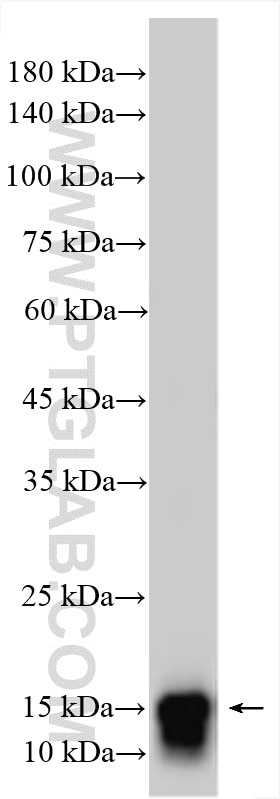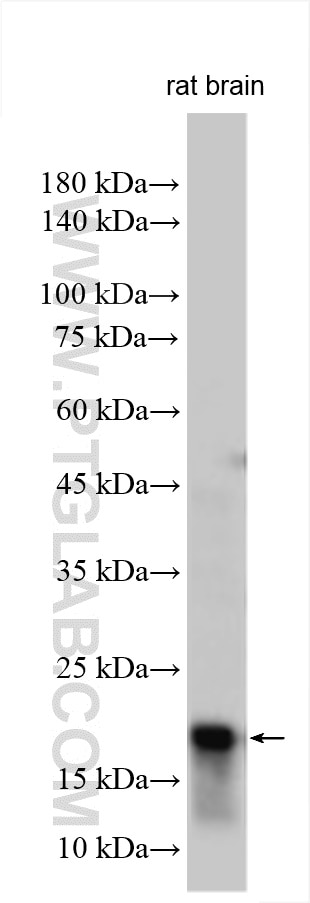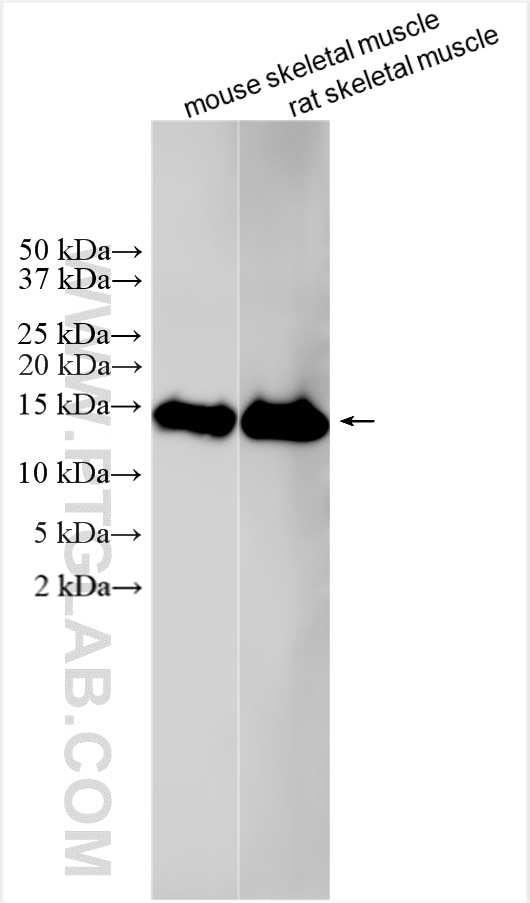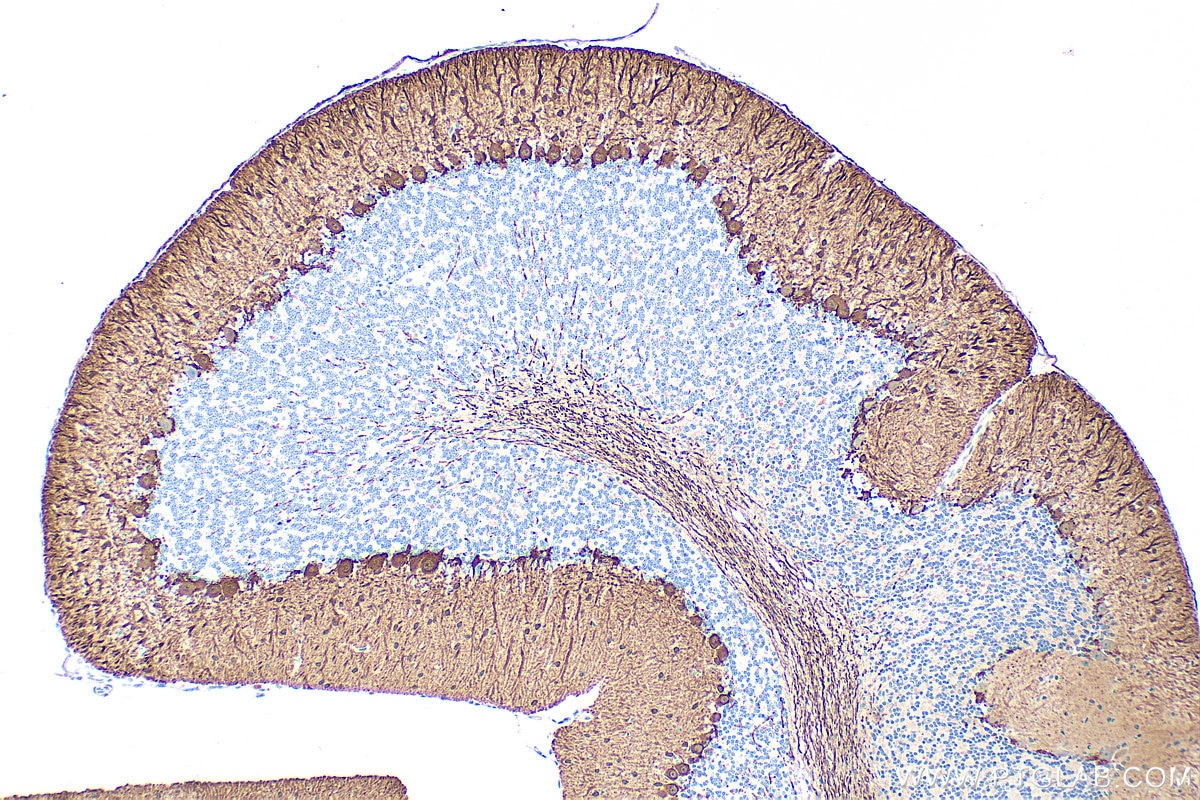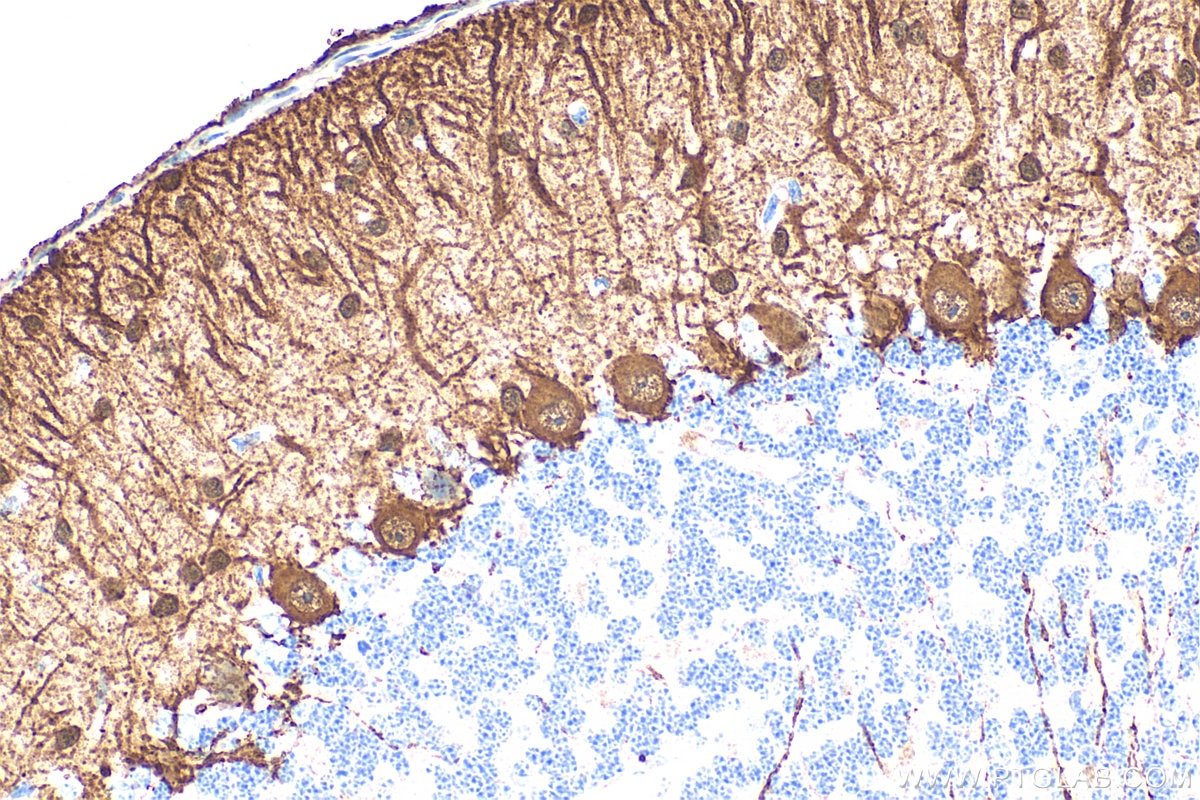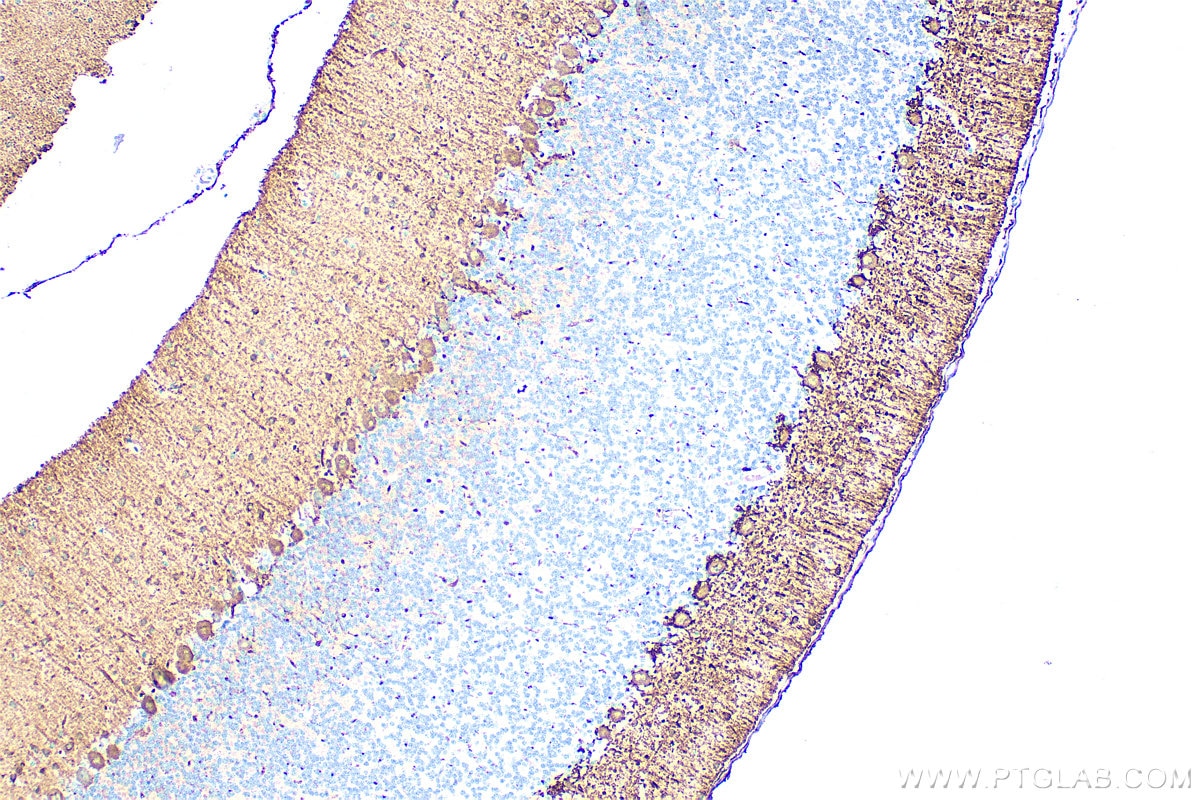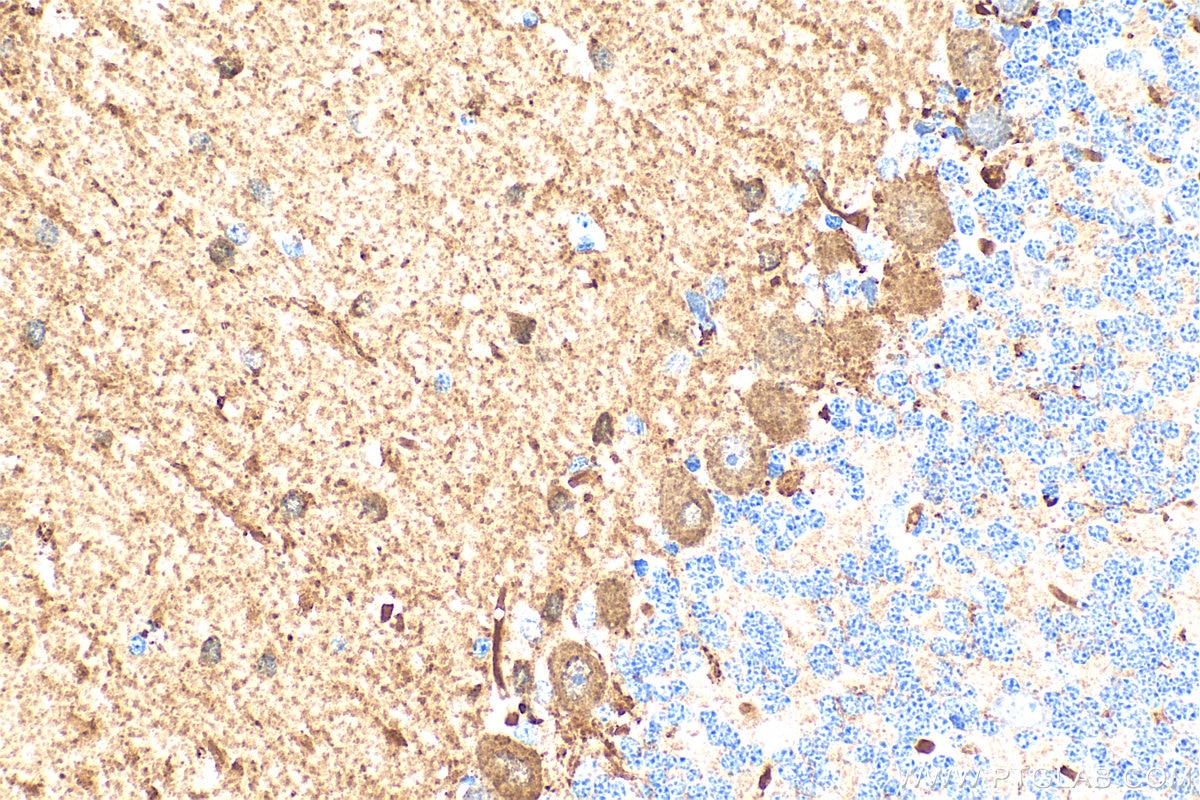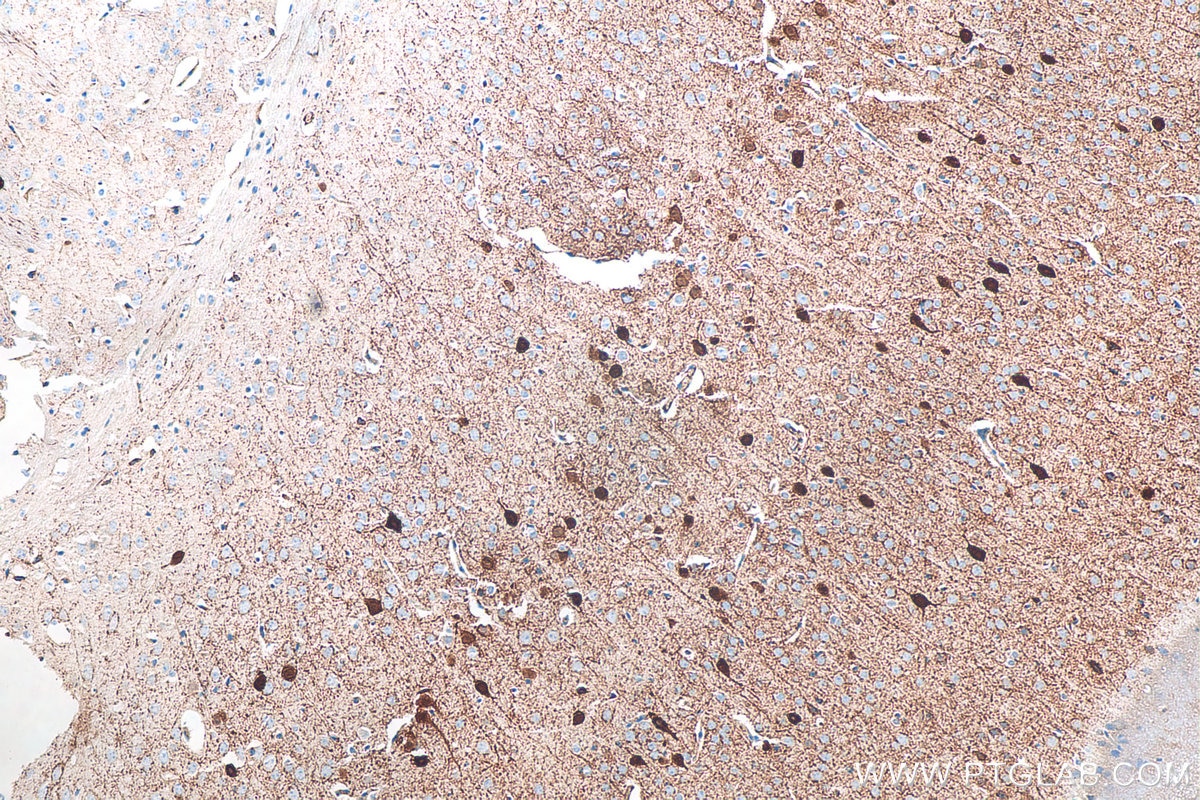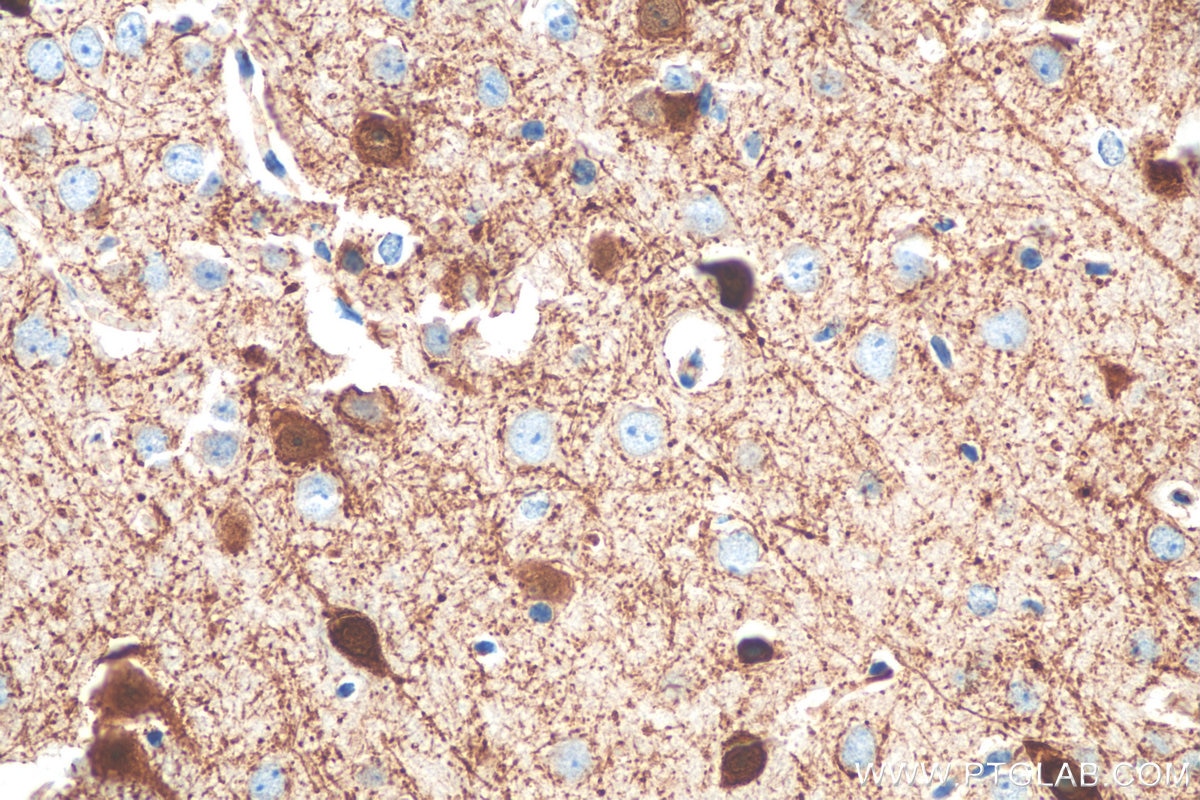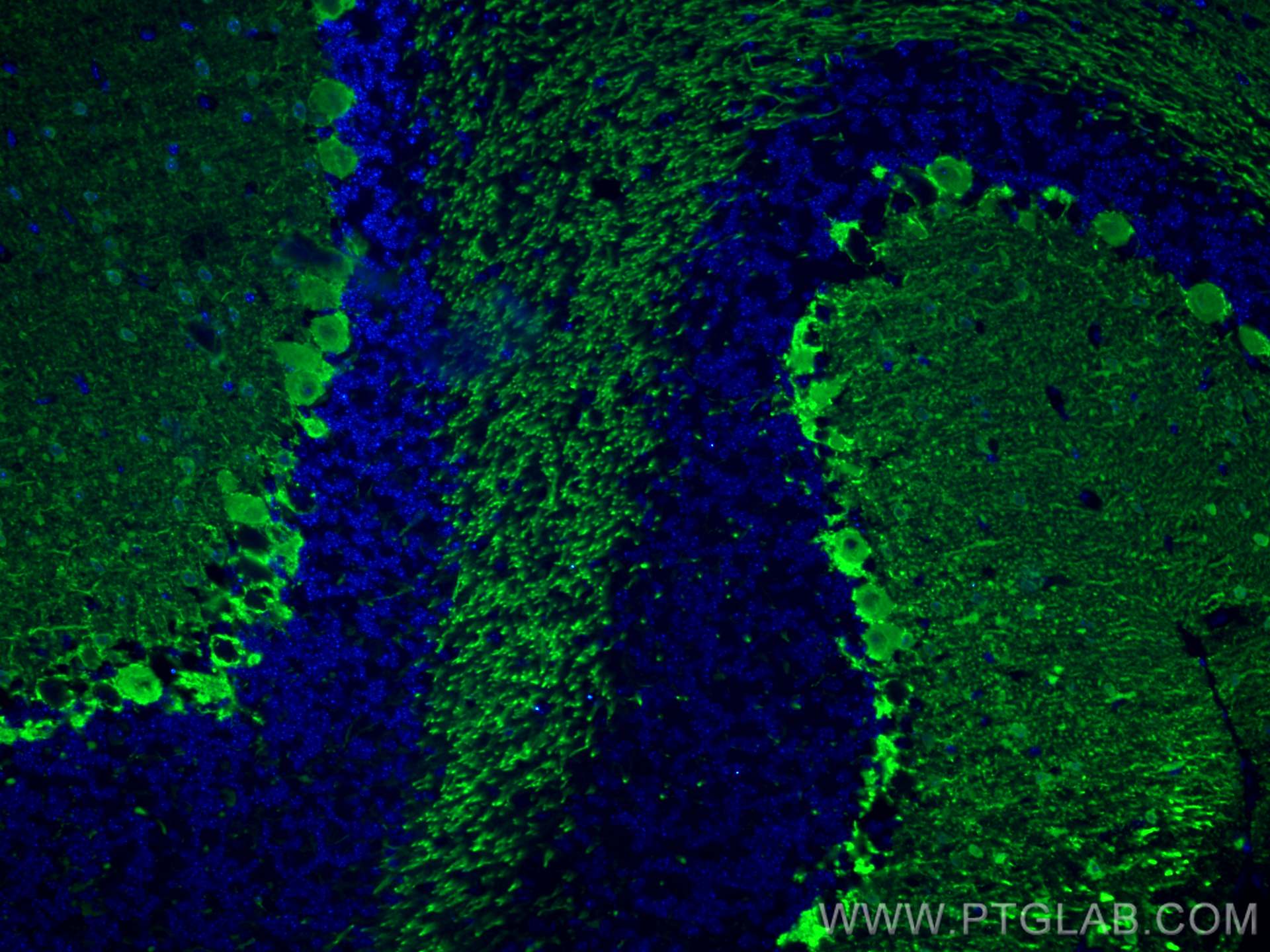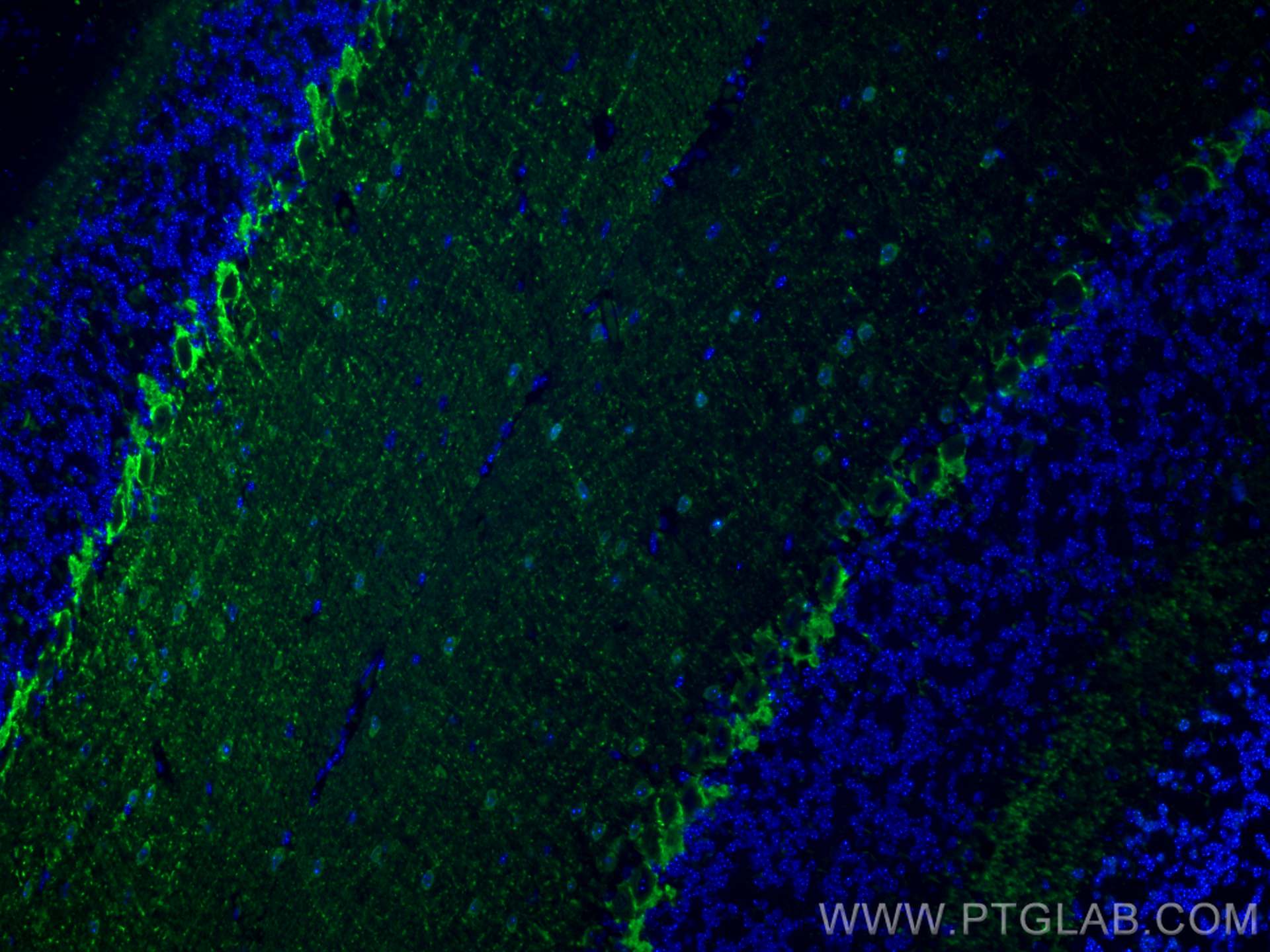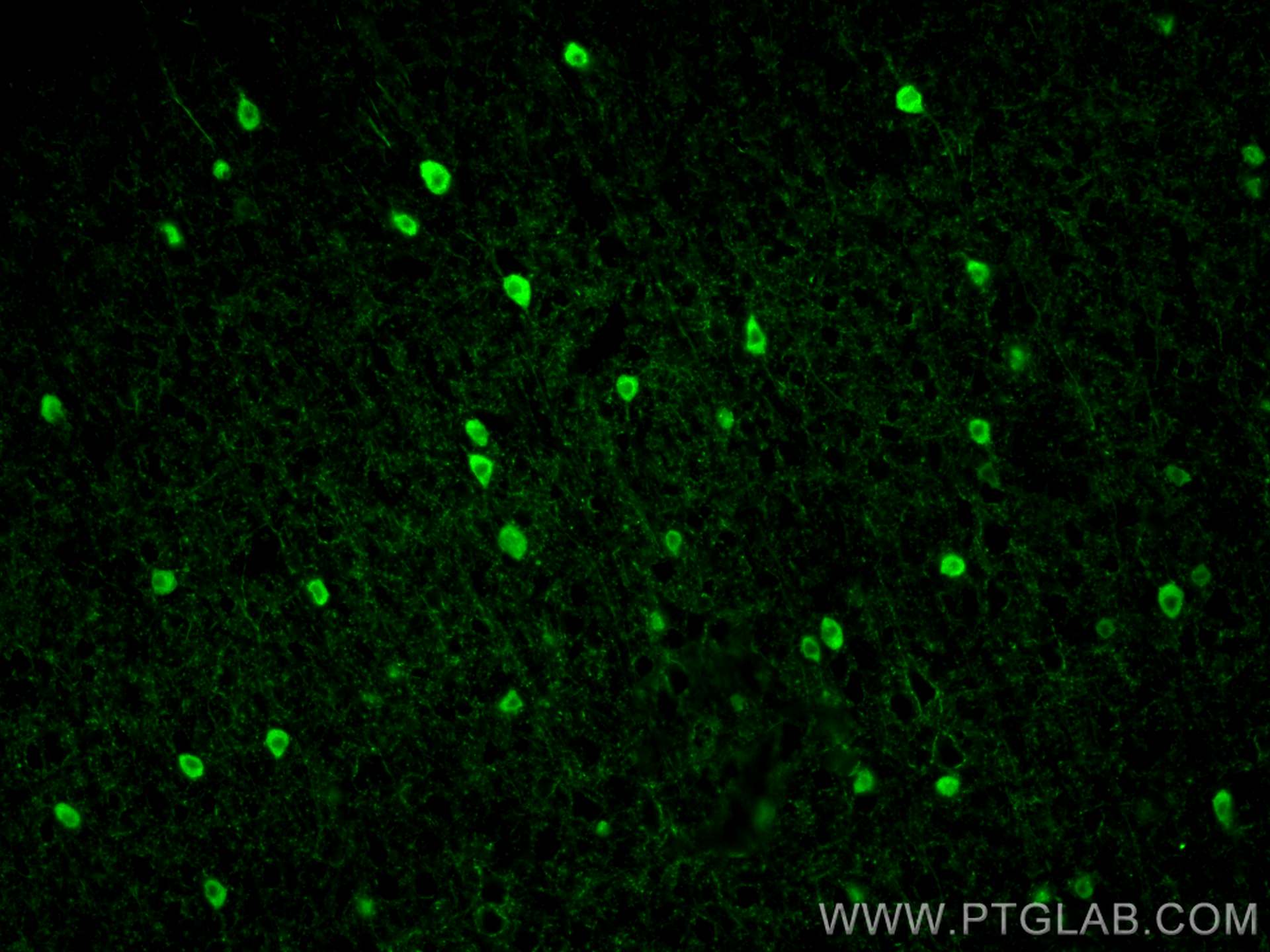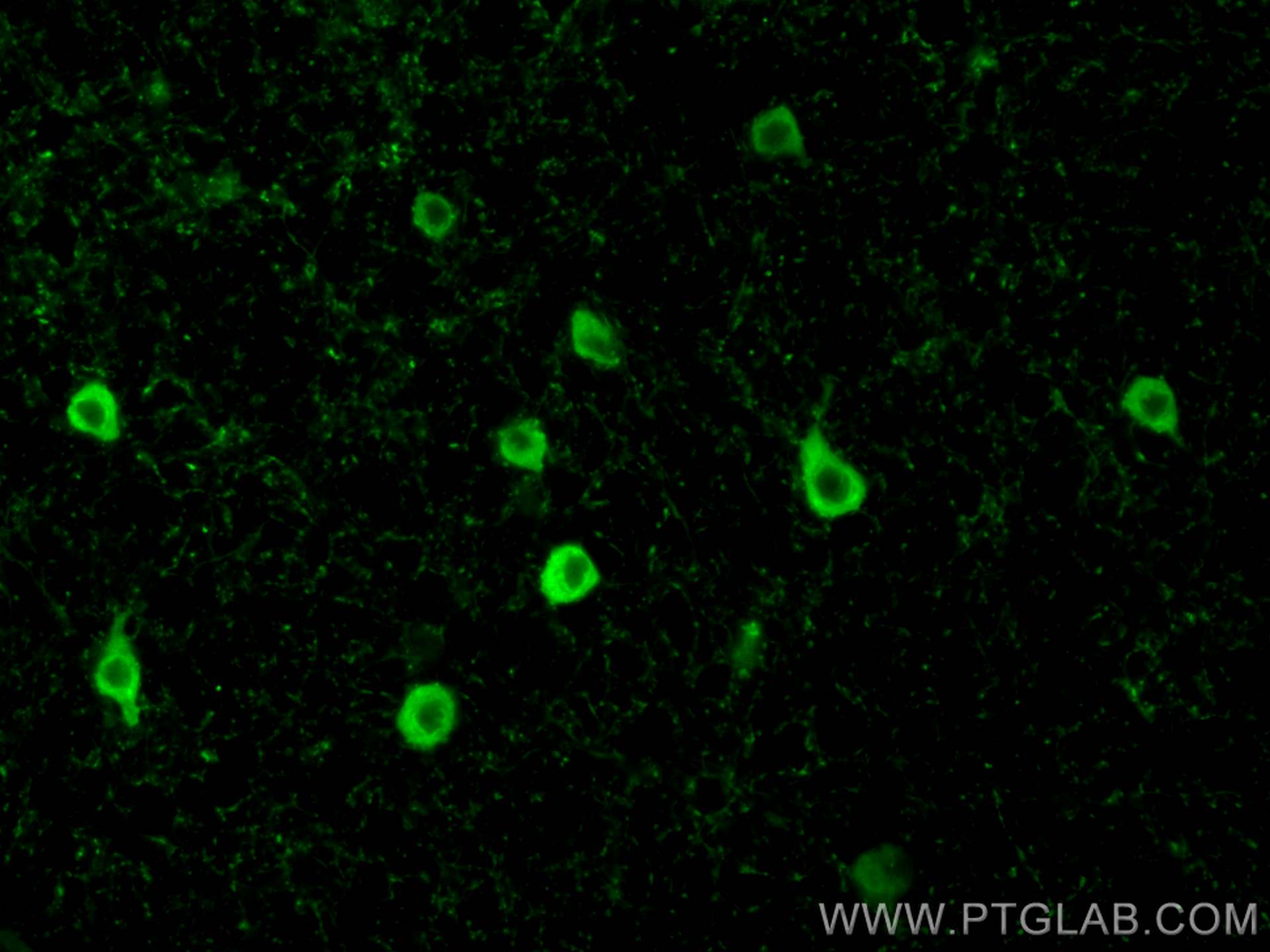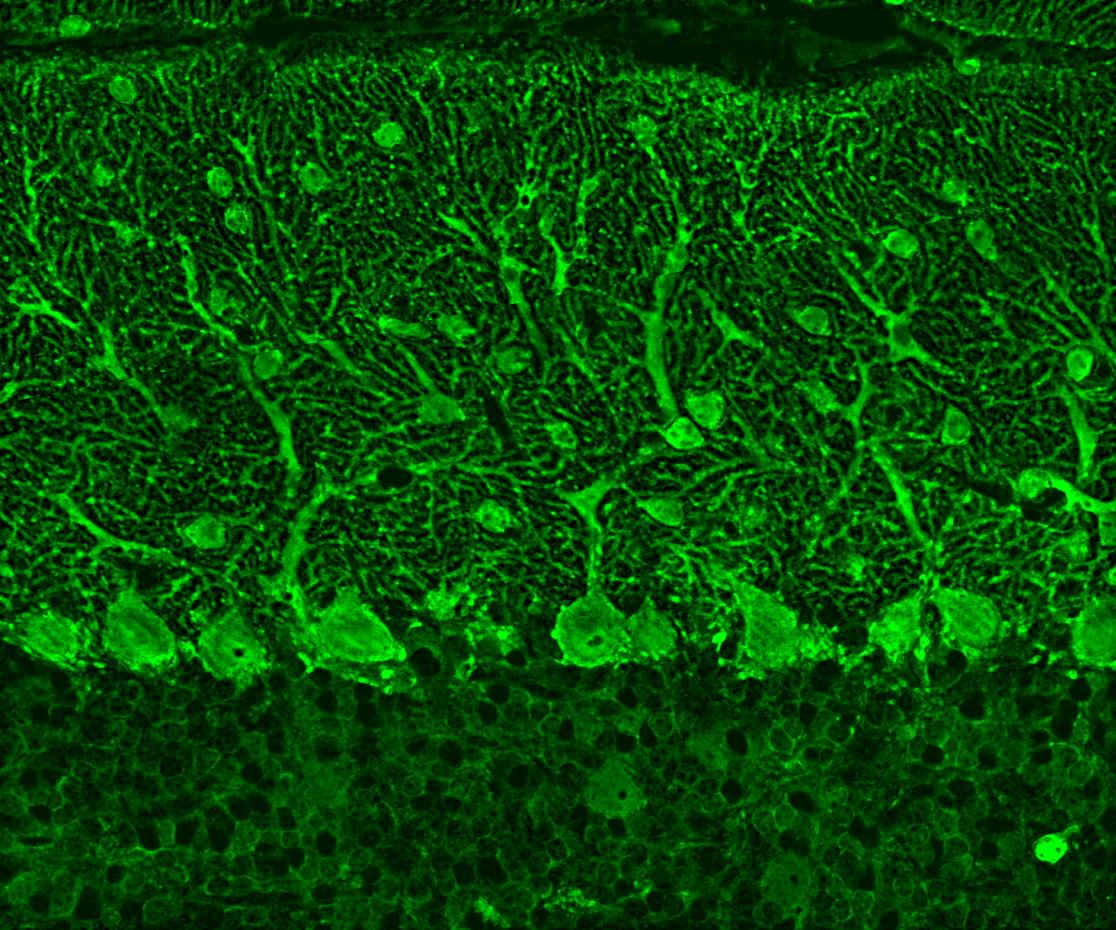Parvalbumin Polyklonaler Antikörper
Parvalbumin Polyklonal Antikörper für WB, IHC, IF-P, ELISA
Wirt / Isotyp
Kaninchen / IgG
Getestete Reaktivität
human, Maus, Ratte
Anwendung
WB, IHC, IF-P, ELISA
Konjugation
Unkonjugiert
Kat-Nr. : 29312-1-AP
Synonyme
Geprüfte Anwendungen
| Erfolgreiche Detektion in WB | Maushirngewebe, Maus-Skelettmuskelgewebe, Rattenhirngewebe, Ratten-Skelettmuskelgewebe |
| Erfolgreiche Detektion in IHC | Maus-Cerebellum-Gewebe, Maushirngewebe, Ratten-Cerebellum-Gewebe Hinweis: Antigendemaskierung mit TE-Puffer pH 9,0 empfohlen. (*) Wahlweise kann die Antigendemaskierung auch mit Citratpuffer pH 6,0 erfolgen. |
| Erfolgreiche Detektion in IF-P | Maus-Cerebellum-Gewebe, Maushirngewebe |
Empfohlene Verdünnung
| Anwendung | Verdünnung |
|---|---|
| Western Blot (WB) | WB : 1:500-1:2000 |
| Immunhistochemie (IHC) | IHC : 1:500-1:2000 |
| Immunfluoreszenz (IF)-P | IF-P : 1:50-1:500 |
| It is recommended that this reagent should be titrated in each testing system to obtain optimal results. | |
| Sample-dependent, check data in validation data gallery | |
Veröffentlichte Anwendungen
| WB | See 3 publications below |
| IHC | See 2 publications below |
| IF | See 4 publications below |
Produktinformation
29312-1-AP bindet in WB, IHC, IF-P, ELISA Parvalbumin und zeigt Reaktivität mit human, Maus, Ratten
| Getestete Reaktivität | human, Maus, Ratte |
| In Publikationen genannte Reaktivität | Maus, Ratte |
| Wirt / Isotyp | Kaninchen / IgG |
| Klonalität | Polyklonal |
| Typ | Antikörper |
| Immunogen | Parvalbumin fusion protein Ag30189 |
| Vollständiger Name | parvalbumin |
| Berechnetes Molekulargewicht | 12 kDa |
| Beobachtetes Molekulargewicht | 15 kDa |
| GenBank-Zugangsnummer | NM_002854 |
| Gene symbol | Parvalbumin |
| Gene ID (NCBI) | 5816 |
| Konjugation | Unkonjugiert |
| Form | Liquid |
| Reinigungsmethode | Antigen-Affinitätsreinigung |
| Lagerungspuffer | PBS with 0.02% sodium azide and 50% glycerol |
| Lagerungsbedingungen | Bei -20°C lagern. Nach dem Versand ein Jahr lang stabil Aliquotieren ist bei -20oC Lagerung nicht notwendig. 20ul Größen enthalten 0,1% BSA. |
Hintergrundinformationen
PVALB is a high affinity calcium ion-binding protein that is structurally and functionally similar to calmodulin and troponin C. PVALB is expressed in high levels only in fast-contracting muscles and at lower levels in brain and several endocrine tissues. It is thought to be involved in muscle relaxation. Monomeric (12 kDa) and dimeric (24 kDa) forms, as well as trimeric Parvalbumin (38 kDa), have been described in a literature (PMID: 19616851).
Protokolle
| PRODUKTSPEZIFISCHE PROTOKOLLE | |
|---|---|
| WB protocol for Parvalbumin antibody 29312-1-AP | Protokoll herunterladen |
| IHC protocol for Parvalbumin antibody 29312-1-AP | Protokoll herunterladenl |
| IF protocol for Parvalbumin antibody 29312-1-AP | Protokoll herunterladen |
| STANDARD-PROTOKOLLE | |
|---|---|
| Klicken Sie hier, um unsere Standardprotokolle anzuzeigen |
Publikationen
| Species | Application | Title |
|---|---|---|
Front Mol Neurosci PGC-1α regulates critical period onset/closure, mediating cortical plasticity | ||
Physiol Res High-Intensity Interval Training Increases Osteoarthritis-Associated Pain-Sensitive Threshold Through Reduction of Perineuronal Nets of the Medial Prefrontal Cortex in Rats | ||
Transl Androl Urol Whole body vibration training promotes proprioceptive pathway for the treatment of stress urinary incontinence in rats | ||
Mol Neurobiol Oxidative Stress-mediated Loss of Hippocampal Parvalbumin Interneurons Contributes to Memory Precision Decline After Acute Sleep Deprivation | ||
Cell Rep Methods A versatile vessel casting method for fine mapping of vascular networks using a hydrogel-based lipophilic dye solution | ||
STAR Protoc Protocol for fine casting, imaging, and analysis of murine vascular networks with VALID |
Rezensionen
The reviews below have been submitted by verified Proteintech customers who received an incentive for providing their feedback.
FH Reyes (Verified Customer) (03-01-2024) | Parvalbumin (red) antibody worked in my human brain cortex sections, although it marks mostly the synaptic terminals more than the soma of the parvalbumin cells
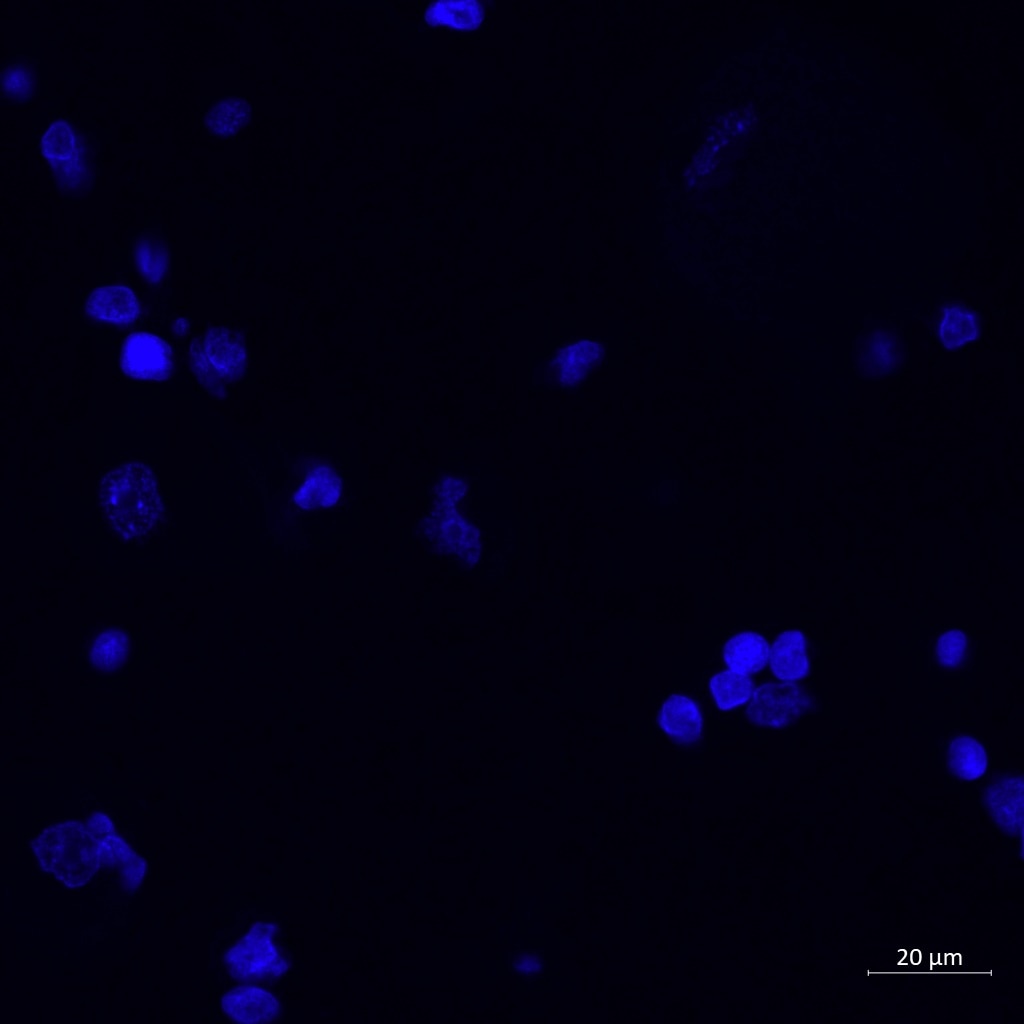 |
